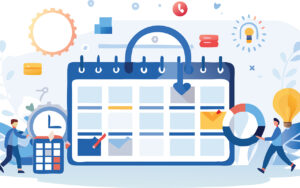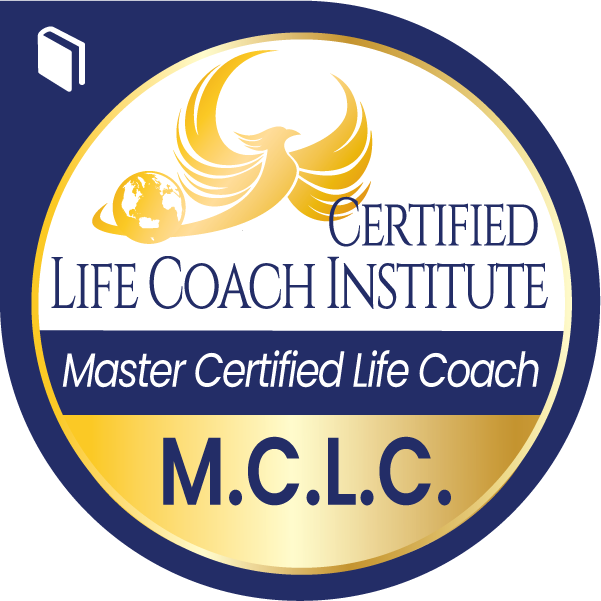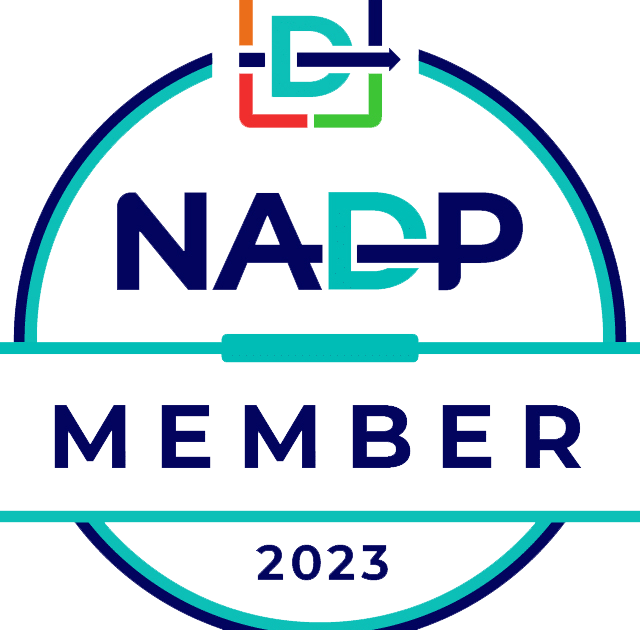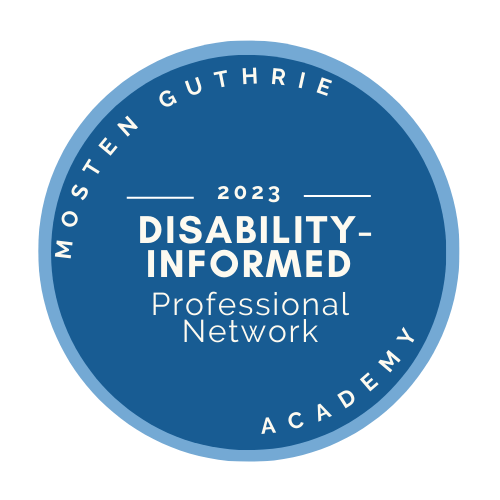At Feig Mediation Group, family mediation keeps you and your loved ones in control, rather than relying on a judge or someone unfamiliar with your situation to make decisions for you. It’s about creating a path toward resolutions and understanding, so unresolved conflicts and resentments don’t continue to fester.
To help you better understand our process, we’ve answered some frequently asked questions below. For a more tailored sense of how we might be able to help with your situation, schedule a free consultation with us today.
FAQs
What is Family Mediation?
Family mediation is a structured, solutions-oriented process that helps you address challenging decisions and conversations with greater clarity, cooperation, and less stress.
Working together in mediation, you’ll have the guidance and support needed:
- Identify the issues clearly and explore their context
- Define where you agree and pinpoint the areas where you do not agree
- Understand and each other’s perspectives, interests, needs and goals
- Evaluate possibilities and ideas in a cooperative, more informed way, and whenever possible…
- Align on a plan the future that you all can agree to
The process is confidential, future-oriented and entirely voluntary. The focus is on addressing the issues and creating options and solutions that speak to what’s important to you—not on spending more energy to no avail or, worse, attacking each other.
Mediation helps you communicate constructively, even when hearing each other feels difficult. It supports your autonomy and your power to be heard and to make informed decisions for yourself.
It’s about building understanding, reducing conflict, and crafting solutions that reflect your family’s unique needs. And, importantly, you remain in control—nothing happens in mediation without everyone’s consent and participation.
When Should I Consider Parent and Family Mediation?
Mediation can help any time your family struggles to make progress with important decisions. We’re here to help families navigate issues across a wide range of challenges and situations, including, just to name some:
- Divorce and separation
- Post-divorce
- Parenting
- Neurodiverse and special needs parenting
- Elder care
- Adult family and sibling issues
- Family business
We also believe that mediation can be a valuable resource for crisis prevention. When used early, mediation can help you avoid the tensions and escalations that make communications more difficult and that negatively impact your family, so that you can preserve your important relationships.
We appreciate that reacting to conflict that has already escalated can be more difficult than addressing it earlier, before people become entrenched in their views. Our goal is to provide mediation as a tool to keep families and business relationships on track – and to help them restore cooperation and alignment when different viewpoints divide them.
In other words, we see the potential for mediation as more than a reactive process, but one that is preventive and even restorative.
It’s what we mean when we refer to “Family and Business Wellness” in our brand tagline – we view our work as creating healthier ways forward.
What Are Some of the Advantages of Mediation?
In general, mediation is typically faster, more affordable—and most importantly—healthier and more constructive when compared to more “formal” proceedings like litigation or arbitration. Here are the key advantages of family mediation:
- You Stay In Control: Mediation is a guided process based on maintaining your autonomy and control over your own situation. That is, you are always the decision-maker, and you always have a voice. For family conflicts, mediation can provide a much-needed space for everyone to get their issues “on the table,” and then, with the assistance of the mediator, step back and have a different kind of conversation about them.
- Constructive Conversations: Mediation offers a structured, supportive environment to openly discuss and address challenging issues in a future-oriented, constructive way—moving from adversarial (“win or lose”) ways of thinking to more collaborative solutions (“how can we each get the most of our needs met?”).
- Customized Outcomes: Unlike procedures where decisions are made or imposed on you by a third party, in mediation you work directly to develop solutions that you are comfortable with, reflecting your specific situation, needs, and goals.
- Cost and Time Savings: Particularly in divorce cases, mediation often significantly reduces the expense, stress, and delays common in contentious court battles. Procedures like motions, depositions, and court appearances are typically minimized or entirely avoided, saving both money and emotional strain. Once mediation is complete, attorneys can readily formalize your agreements for court approval.
How Long Does Mediation Last?
Mediation lasts only as long as it’s useful for you—no retainers, no long-term commitments. At Feig Mediation Group, we help you focus on clearly defined issues and support you until everyone involved feels those issues have been sufficiently addressed.
We also encourage parents and families to use mediation proactively when new issues arise, or when existing arrangements need adjustment—such as when children get older, or have new or different needs; when changes co-parenting responsibilities are needed; or when family changes mean that you have to make decisions as a team in ways that are hard to do.
Each mediation session typically runs about two hours. We find that this gives families enough time to slow down, hear and understand each other’s “part” of the story, and problem-solve without feeling rushed.
The number of mediation sessions depends entirely on your family’s goals and the number of issues you’re looking to work through.
How Does the Mediation Process End?
Our goal in mediation is to help your family reach decisions and create a clear, agreed-upon path forward.
As you align on solutions, we’ll document your agreements in a Memorandum of Understanding (MOU)—a practical summary that acts as your roadmap for moving forward.
We can educate you on how to work with (or when to engage with) your other advisors, such as your attorneys, coaches, therapists and other supportive professionals, to help your team understand and honor the agreements you’ve created.
When You Say the Mediator is “Neutral,” What Does That Mean?
The mediator’s role is to be a neutral facilitator of the mediation process, meaning he or she does not represent or champion the interests of any of the involved participants. The mediator is there to provide the mediation process, and to support productive, balanced discussions with structure and support.
The mediator is not an advocate or legal advisor. No attorney-client relationship or similar relationship is created between the mediator or the participants.
To protect neutrality, transparency, and fairness, Feig Mediation Group adheres to a number of communications policies and guidelines:
- We do not mediate outside of mediation sessions, whether by email, text or by telephone.
- Any mediation communications that have bearing on the mediation should copy all participants.
- Any communications that are not administrative or logistical in nature (e.g., sharing documents with each other in preparation for a session, addressing scheduling or payment issues) are to be made during the mediation session.
- The mediators will not “referee” any email or similar communications between participants.
- If a caucus is requested by a participant an equal opportunity will be provided to the other participants.
Is Mediation Confidential?
Yes. Confidentiality is fundamental to the mediation process and is protected under state laws, which vary by state.
At Feig Mediation Group, we follow clear confidentiality policies to ensure a private and secure environment for all participants. Mediation sessions are strictly limited to the agreed-upon participants:
- No one other than the participants may attend, gain access to , or otherwise “listen in” on the mediation without the prior consent of the mediator and the other participants. This includes sharing any links or access codes that are provided.
- No recording, streaming or broadcasting of the mediation or any mediation communication is allowed.
That being said, we do encourage you to share the final outcomes of our mediation process with your trusted advisors, such as your attorney and/or financial planners, to ensure that the decisions agreed upon in mediation are effectively implemented and to make sure you are receiving the advice you need.
Does The Mediator Provide Financial or Legal Counseling?
No. A mediator does not provide legal or financial advice. We encourage participants in our mediation process to engage their own, private counselors or advisors to assist them with any legal, financial, tax or other issues that might have bearing on them or the subject matter of the mediation. We believe that it is beneficial for all parties to be as well informed as possible on their issues.
With that said, Feig Mediation Group is led by Erik M. Feig, a trained engineer and a veteran attorney who served in the C-suite as general counsel for an industry-leading technology company for more than a decade. Erik’s deep legal knowledge, leadership experience, and practical problem-solving approach helps families more quickly understand and communicate about complex issues and arrive at better, more effective solutions grounded in reality.
What is The Difference Between Mediation and Therapy?
Mediation isn’t therapy or counseling. At Feig Mediation Group, we describe mediation as “tactical problem-solving.”
Mediation can be a valuable adjunct and complement to counseling, since our focus as mediators is on providing a process that allows participant to identify, define, and address the points where they get “stuck” on important issues in a more focused way.
While therapy and counseling generally focus on improving the overall relationship, mediation zeroes in on resolving specific conflicts and communication issues efficiently.
Indeed, we have relationships with therapists and counselors where we, as a practice, make our services available as a targeted, complementary resource to them and their clients for specific conflicts that can be dealt with in mediation more efficiently.
Is Mediation Always the Right Choice? When is Mediation Not a Good Fit?
Mediation can be a powerful, effective tool for a wide range of difficult family situations—whether it’s divorce and parenting issues, elder care decisions, or navigating family business dynamics. But deciding if mediation is right for your family ultimately depends on your unique circumstances.
Our goal is always to create a safe, supportive, and productive environment for your conversations. Safety in this sense includes both physical and emotional safety. If either of those goals cannot be met, or if any of the participants to a mediation are either unable or unwilling to stay within those bounds, then mediation may not be the right fit for them.
Central to our role your mediator is maintaining open lines of communication throughout the process. We conduct a screening discussion before undertaking parent or family mediations. It is important that anyone considering mediating with us feel comfortable being candid about their situation so that we can explore with them whether mediation may be appropriate for their specific circumstance.
If at any time during the mediation process safety becomes a concern for any of the participants, it is important that the issue be raised with your mediator without delay. Remember, mediation is a voluntary process—no one should feel they have to engage or continue in a process in which they feel unsafe.
Likewise, if the mediator believes at any point that mediation is not—or is no longer—suitable, we will raise that with you and we may pause or end the mediation.
If you’re in doubt, we encourage you to schedule a free consultation. We’ll explore your situation together and determine if mediation can meet your needs.
What If I Can’t Get My Family to Agree to Mediation?
When loved ones resist family mediation, it doesn’t mean you’re out of have options. Sometimes the time for mediation is “not now, but maybe soon,”or it may be that you are willing to move forward while they are not. That’s why Feig Mediation Group also offers personalized one-on-one conflict coaching as an alternative approach for those who are willing to engage.
Our Conflict Coaching service lets you work directly with Erik Feig, an experienced mediator, executive, and former attorney, to help you navigate family conflicts with greater clarity and confidence—and less stress—even if you’re doing it alone. You’ll gain practical skills in communication, managing emotions, and finding effective ways to more effectively engage with family members who aren’t yet open to mediation.
Our goal is to help you move your family’s challenges out of the “battlefield” and into a space where progress, understanding, and stronger relationships are possible.
While conflict coaching is designed for one-on-one support, there are times where you can include others who share your goals for moving things forward. Whether it’s a new spouse, a like-minded sibling, or another trusted family member, we can help you navigate those tricky dynamics together—even if others in your family aren’t ready.

What Makes Feig Mediation Group Different from Other Mediators?
At Feig Mediation Group, mediation isn’t just about resolving today’s conflict—it’s also about giving your family the tools to communicate and better cooperate, creating a foundation for long-term success even after the mediation is over. That means we’re not quite like other mediators. Here’s what makes us different:
Neurodiverse and special needs family expertise
Get proven guidance on navigating the unique decisions that come with raising differently wired kids.
More than conflict resolution: conflict reduction
We help you resolve today’s conflicts and show you how to prevent future ones before they escalate.
Together-first approach
Our unique approach leads to stronger cooperation, even if you’re moving in different directions.
Real-world action plans
We’ll help you transform your ideas into documented plans that work for your everyday life.
After-session support
We show you how to get your family’s team, from therapists to coaches to attorneys, working in sync with your action plan.
Free Tools To Help Your Family Now
At Feig Mediation Group, we’re dedicated to helping your family find the way forward together, even when you’re not in active mediation. Check out some of our latest guides to navigating your family’s challenges.

The “Beta Test” for Your Future: How a Parenting Plan Can Help You Before Your Divorce
In this Article, You Will Learn: The “Beta Test” Mindset: How to reframe separation as more than a “waiting room” – but as an active

Already Working with a Divorce Coach? Why Adding a Mediator to the Team is a Smart Move
In This Article, You’ll Learn: The distinct difference between the “Me-work” of coaching and the “Together-work” of mediation. Why even the best individual

My Partner Won’t Go to Counseling. Now What? Here’s Another Way to Move Forward
In This Article, You’ll Learn: Why trying to force a reluctant partner into counseling often backfires and what you can do instead. How to shift

The “Beta Test” for Your Future: How a Parenting Plan Can Help You Before Your Divorce
In this Article, You Will Learn: The “Beta Test” Mindset: How to reframe separation as more than a “waiting room” – but as an active

Already Working with a Divorce Coach? Why Adding a Mediator to the Team is a Smart Move
In This Article, You’ll Learn: The distinct difference between the “Me-work” of coaching and the “Together-work” of mediation. Why even the best individual







